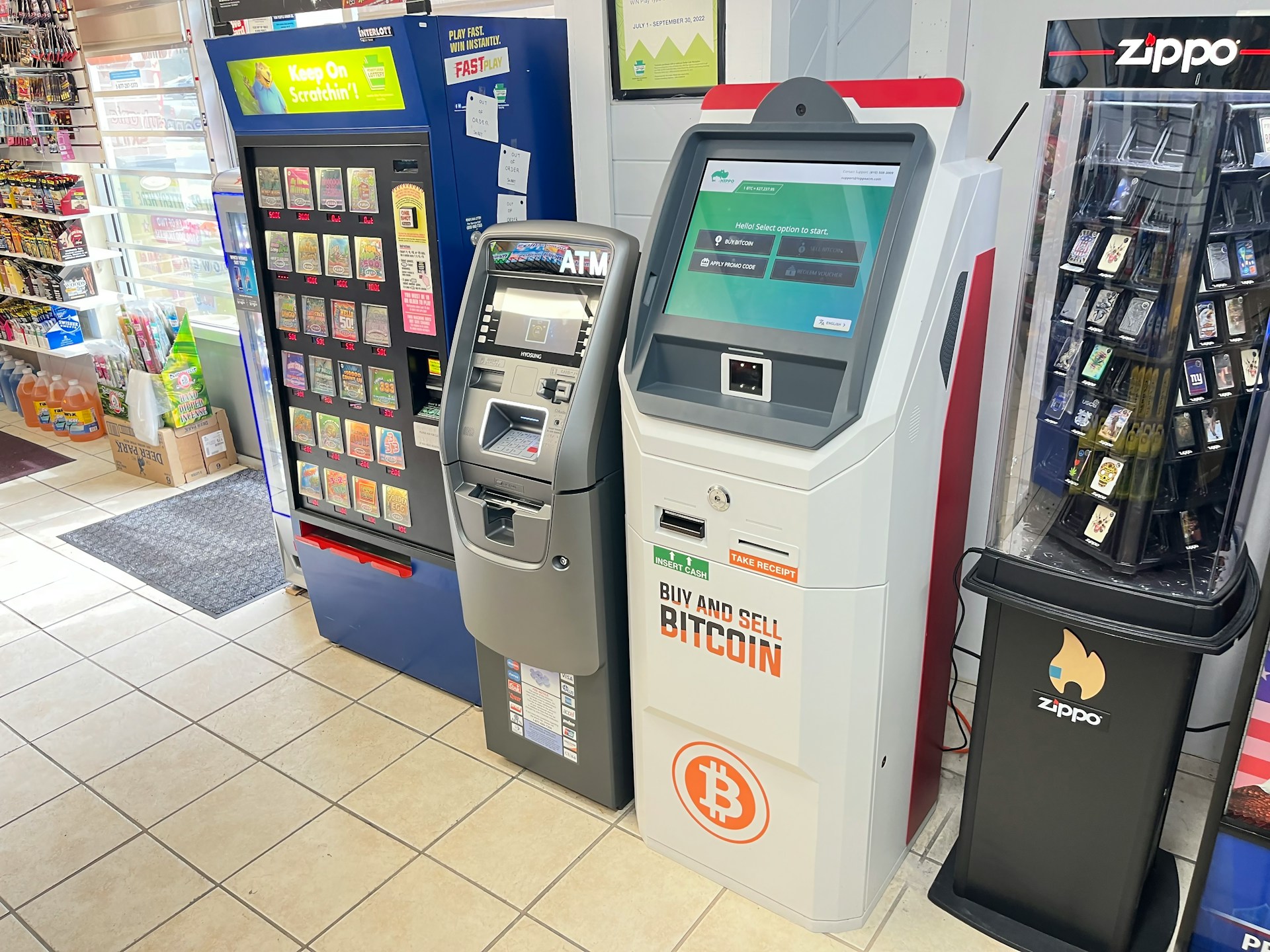In Which Countries Cryptocurrency Is Legal
Where You Can Pay with Bitcoin in 2025 — and Where You Can’t

Now that Bitcoin and other cryptocurrencies become more integrated into the global economy, many countries are developing crypto laws to prevent money laundering and other illegal activity. In some places, cryptocurrency is already legal. In others, it still exists in a legal gray area — or is completely banned.
Which countries started to use the potential of digital assets, and which remain skeptical or enforce strict bans? Let’s break it down in this overview from 1tab.
1tab helps you make international transfers, convert crypto to fiat and vice versa easily and securely. If you need to send money to Russia, the UAE, Georgia, or pay for property with a manager’s cheque, leave a request below.
Countries Where Cryptocurrency Is Legal
In countries where crypto is legal, its status and regulation can vary widely. In some places, it’s treated as a financial asset; in others, it’s property. Only two countries so far have made Bitcoin legal tender — an officially recognized payment method that can be used for goods and services nationwide: El Salvador and the Central African Republic.
El Salvador

Status: Legal; considered an asset or property, but not legal tender.
Since September 2021, citizens of El Salvador have been able to use BTC to pay for goods and services. While it was initially mandatory for technically capable businesses to accept Bitcoin, this requirement was lifted in January 2025.
The government continues to promote crypto adoption through an official app, and Bitcoin transactions remain exempt from capital gains tax.
El Salvador’s crypto legislation is aimed at attracting investment to the country. In 2023, the government launched the Adopting El Salvador Freedom Visa program: investors who contribute $1 million to the country’s economy in BTC or USDT receive a “Freedom Visa” — a residency permit with a path to citizenship. The program is currently capped at 1,000 visas per year.
Central African Republic (CAR)
Status: Legal; considered an asset or property, but not legal tender.
In April 2022, the Central African Republic (CAR) passed a law granting BTC and other cryptocurrencies the same status as the CFA franc, so now they can be used for all types of transactions.
However, this initiative was repealed in March 2023, and Bitcoin is no longer considered legal tender. While the government initially promoted crypto adoption to attract investment, the country faced major infrastructural challenges — including limited internet access and low digital literacy — that ultimately stalled the program.
United Kingdom
Status: Legal; classified as property, not legal tender.
The UK began regulating cryptocurrencies in 2014. Today, Bitcoin transactions fall under the Financial Services and Markets Act (FSMA). It’s legal to mine, buy, sell, store, and invest in crypto. Some businesses accept Bitcoin as payment, although it’s not yet a widespread practice. Cryptocurrency is officially classified as property under UK law, allowing courts and law enforcement to treat it within the framework of asset protection.
In 2024, new powers introduced under the Economic Crime and Corporate Transparency Act allow law enforcement to seize and freeze crypto assets without arresting the owner, if they are suspected of criminal activity. In some cases, crypto can even be destroyed if its continued existence is deemed contrary to public interest (e.g. anonymous privacy coins).
Crypto firms operating in the UK must comply with AML/KYC requirements and obtain proper registration through the Financial Conduct Authority (FCA). Promotions of crypto-related services are strictly regulated. The country maintains a permissive stance on crypto usage, but it’s moving toward tighter oversight of advertising, consumer protection, and criminal enforcement.
United States
Status: Legal; classified as property or a commodity, not legal tender.
In the United States, cryptocurrency is legal and classified either as property (by the IRS) or as a commodity (by the CFTC), but it is not considered legal tender, meaning businesses are not obligated to accept it. Federal regulation is evolving, with bills like the CLARITY Act aiming to define oversight responsibilities between agencies, while states retain their own laws: New York enforces a strict BitLicense, whereas Wyoming promotes crypto-friendly policies.
Although crypto is widely used as an investment asset and for payments, its acceptance in retail remains voluntary. In 2025, the U.S. continued to lead the world in the number of crypto ATMs, hosting over 31,500 machines, or 81% of the global total.

European Union
Status: Legal; classified as a digital asset, not legal tender.
In 2023, the European Union introduced a common regulatory framework for cryptocurrencies called MiCA (Markets in Crypto-Assets Regulation), which is now being implemented across member states, according to the ESMA overview.
Under MiCA, Europeans are allowed to buy, sell, store, and invest in Bitcoin and other coins, although specific options may vary by country. Cryptocurrencies are legally considered digital assets, and may be regulated as commodities, securities, or e-money depending on their characteristics — but they are not classified as legal tender, and businesses are not required to accept them.
Some shops and services accept crypto as payment voluntarily, such as Room 77, a bar in Germany known for accepting Bitcoin. Crypto cards (e.g. Binance Card, Crypto.com Visa) are also used at regular retail locations via fiat conversion.
The EU not only supports a favorable regulatory environment but also promotes crypto on a cultural and social level. The world’s first Bitcoin monument was unveiled in 2018 in Kranj, Slovenia.
Switzerland
Status: Legal; considered an asset or property, but not legal tender.
In 2014, Switzerland’s financial regulator (FINMA) issued guidance recognizing cryptocurrencies as legal assets that can be bought, sold, stored, and invested in. Crypto cards are widely used in Switzerland, allowing users to pay in regular shops by converting Bitcoin into fiat currency — examples include the Wirex Visa Card and SwissBorg Premium Card. In some cantons, it’s even possible to pay taxes and utility bills with crypto.
Thanks to its progressive approach to digital assets, Switzerland has earned the nickname “Crypto Valley.” The canton of Zug, one of the country’s 26 regions, has become a major hub for crypto startups and companies due to tax incentives and strong infrastructure.

Canada
Status: Legal; classified as a commodity or security, not legal tender.
Canada does not have a single nationwide crypto law, but the government is actively discussing the creation of a dedicated regulatory body to oversee the digital asset market. Buying, selling, storing, and investing in cryptocurrency is fully legal. Both local exchanges (e.g., Coinsquare, Bitbuy) and international platforms (e.g., Kraken, Coinbase) operate in the country.
Binance exited the Canadian market in 2024 due to tightened compliance requirements from regulators. Crypto cards — such as those offered by Crypto.com and Wirex — are used to make purchases in regular stores via instant conversion to Canadian dollars.
Canada was the site of the world’s first Bitcoin ATM, installed in Vancouver back in 2013. As of mid-2025, the country hosts over 3,500 crypto ATMs, making it second only to the United States in global deployment.
Canada is also a popular destination for crypto miners thanks to low electricity prices (≈5 cents CAD per kilowatt-hour) and a cold climate that reduces cooling costs. Provinces like Quebec and Manitoba regularly experience winter temperatures between −10 °C and −25 °C, making them ideal for large-scale mining operations.
Georgia
Status: Legal; treated as a digital asset similar to property, not legal tender.
The concepts of “virtual currency” and “cryptocurrency” were officially defined in Georgia back in 2019 through financial and tax regulations issued by the Ministry of Finance. Since then, owning, buying, selling, and exchanging crypto has been fully legal.
Georgia also introduced specific legislation regulating crypto-related businesses: as of January 1, 2023, exchanges, trading platforms, and other crypto services are required to obtain a Virtual Asset Service Provider (VASP) license from the National Bank of Georgia, complying with AML/KYC rules and international standards such as the FATF travel rule.
There are payment platforms in Georgia that enable users to make everyday purchases with cryptocurrency — typically via mobile apps that convert crypto to Georgian lari at the point of sale. Additionally, some companies, especially in real estate, accept crypto indirectly through third-party brokers or exchanges that facilitate conversion and settlement.
If you need to cash out crypto in Georgia, use 1tab. Our office is located in the center of Tbilisi, and we are licensed by the National Bank of Georgia, so we exchange your crypto and make international money transfers fast, securely, and without hassle. Leave a request to discuss it with a manager.
Turkey
Status: Legal; not recognized as an official payment method.
Buying, selling, holding, and exchanging BTC and other cryptocurrencies is fully legal in Turkey, which ranks among the top global markets for crypto activity. However, using crypto to pay for goods and services is prohibited — digital assets are not accepted as official means of payment.
In May 2024, the Turkish parliament passed a comprehensive crypto law that introduced licensing requirements for all crypto-related businesses and expanded oversight by the Capital Markets Board and the Central Bank. Foreign platforms must obtain a license to operate, and unregistered crypto ATMs were ordered to shut down by October 2024. While crypto adoption continues to grow, it remains a subject of social and regulatory debate.

However, not everyone in Turkey supports widespread crypto use. The Directorate of Religious Affairs has stated that cryptocurrencies are not compatible with Islamic principles due to their high volatility. Islamic scholars have expressed concerns that digital currencies are speculative, lack intrinsic value, and may be used for unlawful purposes — all of which conflict with religious teachings.
Japan
Status: Legal; considered property or a commodity, and recognized as a means of payment — similar to currency, but not legal tender.
Japan introduced cryptocurrency regulation in 2017 through the Payment Services Act (PSA), officially classifying crypto-assets as legal property. Under this framework, individuals and businesses are allowed to own, trade, and exchange crypto, and may accept it as payment if they choose — but BTC is not legal tender like the yen, and acceptance is entirely voluntary.
Crypto-assets are subject to oversight by the Financial Services Agency (FSA), and all exchanges operating in Japan must obtain a license and comply with strict AML/KYC standards, custodial rules, and security requirements.
While banks are prohibited from directly conducting crypto transactions, crypto cards are widely used by consumers: platforms such as Binance and Crypto.com offer cards that convert Bitcoin into yen at the point of sale. Cities like Fukuoka are promoting blockchain adoption through partnerships with Web3 infrastructure providers.
If you sell crypto and make a profit, you must report it as miscellaneous income and pay tax at progressive rates from 15% to 55%, depending on your total earnings. You can’t carry forward any losses. You’re also responsible for reporting your own crypto trades. However, the government is considering introducing a fixed 20% tax rate on crypto gains after 2025. Some regions offer limited tax breaks for crypto businesses, mainly through local innovation zones.
Dubai (the United Arab Emirates)
Status: Legal; not recognized as legal tender.
Cryptocurrency has been fully legal in Dubai since March 2022, when Law No. 4 on Virtual Assets came into effect. This was one of the world’s first comprehensive legal frameworks for regulating the crypto market.
The law covers all Virtual Asset Service Providers (VASPs), requiring them to obtain a license from the Dubai Virtual Assets Regulatory Authority (VARA) and comply with strict KYC/AML rules and full transaction transparency.
While cryptocurrency is not recognized as legal tender and businesses are not obligated to accept it, many companies in Dubai — especially in real estate, luxury retail, and tourism — voluntarily accept Bitcoin and Ethereum. For example, property developers like DAMAC, Emaar, and MAG offer real estate purchases in crypto.

In regular stores, crypto payment cards such as the Binance Card or Crypto.com Visa can be used to pay in dirhams by converting digital assets at the time of purchase.
Dubai imposes no personal income tax, including on crypto earnings, making it an attractive destination for investors and startups. Since 2023, companies with annual revenue above AED 375,000 are subject to a 9% corporate tax. In addition, certain crypto-related services may be subject to 5% VAT.
Anonymous crypto transactions are prohibited — all activity must be traceable and comply with international transparency standards.
Singapore
Status: Legal; not recognized as legal tender.
Cryptocurrency is legal in Singapore but not recognized as an official legal tender, meaning businesses are not required to accept it. Crypto is classified as a Digital Payment Token (DPT) and regulated under the Payment Services Act (PSA) and the Financial Services and Markets Act (FSMA).
As of June 2025, all crypto-related service providers — including individual operators — must obtain a DPT Service Provider license from the Monetary Authority of Singapore (MAS). Non-compliance may result in fines of up to SGD 250,000 or imprisonment.
Residents commonly use crypto for investment and remittances, especially migrant workers sending money abroad, due to lower fees compared to traditional banking. Some businesses, including cafés, bars, and luxury retailers, accept crypto payments voluntarily, typically using terminals or apps that convert crypto into Singapore dollars (SGD) in real time, allowing customers to spend crypto while merchants receive fiat.

Singapore aims to be a global hub for crypto innovation, although authorities maintain strict controls to prevent financial risks. Anonymous transactions are prohibited, and crypto marketing is tightly regulated. MAS continues to experiment with blockchain and digital currencies through projects such as Project Ubin and Ubin+, which explore interbank settlement and cross-border transactions using tokenized digital assets.
Countries where the status of cryptocurrency has not been determined or where it operates with restrictions
Russia
Status: Legal; treated as a digital asset similar to property, but using it for payments is prohibited.
Cryptocurrency is legal in Russia and classified as property under the Law on Digital Financial Assets, which came into effect in January 2021. The law defines key terms and regulates token issuance, although a unified framework for broader crypto operations is still being developed.
Citizens are permitted to buy, sell, and hold digital currencies, but using them for payments within Russia is prohibited by law, and promoting crypto as a means of payment is restricted under advertising regulations. Since most major exchanges have disabled ruble support, users rely on P2P platforms and online exchangers such as 1tab.
Russia is actively exploring cross-border crypto payments. In 2024, the State Duma supported legislation enabling their use in international trade, currently under further review. The Central Bank is also developing a pilot platform for invoice-based crypto settlements, with a launch expected in late 2025, subject to regulatory progress.
Profits from crypto sales are taxed as personal income at 13% up to ₽2.4 million and 15% beyond. Legal entities involved in mining or crypto-related services are subject to a 25% corporate tax. Individuals must report crypto holdings and transactions if annual turnover exceeds ₽600,000, in line with foreign asset declaration rules.
Kazakhstan
Status: Legal with restrictions; treated as property; not recognized as legal tender.
In 2020, Kazakhstan adopted the Law On Digital Assets, which legalized certain cryptocurrency-related activities such as mining and trading on licensed exchanges. In 2022, a pilot program was launched that allows licensed exchanges and banks to facilitate Bitcoin transactions through official bank accounts.
Kazakhstan was once a major destination for crypto miners due to cheap electricity and a lack of regulation. However, in 2022, the government introduced a surcharge on electricity specifically for mining operations. Today, mining companies are required to sell at least 75% of their mined cryptocurrency through licensed exchanges. Individuals are also only allowed to buy and sell crypto through licensed platforms operating within the Astana International Financial Centre (AIFC).
Ukraine
Status: Legal with some restrictions; classified as a virtual asset; not recognized as legal tender.
Cryptocurrency is legal in Ukraine and classified as a virtual asset under the Law “On Virtual Assets” (No. 3637), passed by the Verkhovna Rada in September 2021. While the law outlines a legal framework for digital asset circulation, it has not fully come into force due to the need for additional regulations and amendments to the Tax Code. Ukrainian citizens can buy, sell, exchange, and invest in crypto, and it is commonly used for international transfers, especially among freelancers and IT professionals.
Although Bitcoin is not recognized as legal tender, some businesses — primarily online retailers and tech companies — accept crypto through payment gateways that instantly convert it into Ukrainian hryvnia (UAH). In 2025, lawmakers are preparing final legislation to enable the law’s full implementation, including a phased taxation model: initial rates as low as 5% for early adopters, rising to 18% standard income tax from 2027.
Armenia
Status: Legal; regulated as property; not recognized as legal tender.
As of July 2025, cryptocurrency is officially regulated in Armenia under the Law “On Cryptoassets”, which establishes legal rules for token issuance, trading, custody, and licensing. Digital assets are treated as property under civil law, but not as legal tender, meaning businesses are not obligated to accept them as payment.
All crypto-related services must be licensed by the Central Bank of Armenia, and beginning in 2026, transactions must be conducted exclusively via non-cash methods in accordance with new amendments to Armenia’s Law on Cashless Settlements.
To strengthen transparency and oversight, Armenian tax authorities adopted Chainalysis software to monitor crypto transactions and detect financial crimes such as money laundering and tax evasion. Despite tighter rules, buying, selling, and storing crypto remains fully legal, and exchange services continue to operate in Yerevan, offering support for popular assets like BTC, ETH, USDT, and more.
Thailand
Status: Legal; use as a means of payment is prohibited.
Cryptocurrency is fully legal in Thailand and regulated as a digital asset under the Royal Decree on Digital Assets (2018), but it is not recognized as legal tender. In line with a policy by the Bank of Thailand and a ruling by the Thai SEC, the use of crypto for payments has been officially banned since April 1, 2022, due to concerns over financial stability and consumer protection.
Despite the restrictions on payment use, residents are allowed to buy, sell, hold, and invest in cryptocurrencies, and crypto mining is also permitted.
In 2025, the government introduced a five-year capital gains tax exemption for trades made on licensed exchanges, valid from January 1, 2025, to December 31, 2029, to attract investment and promote domestic platforms.
Regulators have intensified enforcement: foreign platforms such as Bybit and OKX have been blocked for operating without a license, and local exchanges must comply with strict AML/KYC standards. Thailand also launched a regulatory sandbox to test blockchain-based programmable payments, reinforcing its approach of cautious innovation while maintaining financial safeguards.
India
Status: Cryptocurrency operates in a legal gray area; not recognized as legal tender.
Cryptocurrency is legal in India but remains in a regulatory gray zone, as it is not recognized as legal tender. The market gained momentum in March 2020, when the Supreme Court of India overturned a ban by the Reserve Bank of India (RBI) that had prohibited banks from serving crypto businesses. This ruling revived banking access for exchanges and allowed individuals and companies to buy, sell, and hold digital assets legally.
Digital assets in India are currently governed under financial and tax law. As of 2022, profits from crypto trading are taxed at a flat 30% rate, and all trades above ₹10,000 incur a 1% tax deducted at source. Exchanges must register with FIU-IND and comply with AML/KYC rules.
The Indian government is drafting a comprehensive crypto regulation bill that could introduce licensing, classification of token types, and investor protections. The Securities and Exchange Board of India (SEBI) is also evaluating crypto assets resembling securities. India continues to participate in global policymaking efforts through the G20, IMF, and FATF, and a national crypto policy paper is expected in the second half of 2025.
Nigeria
Status: Legal; regulated as a digital asset; not recognized as legal tender.
Cryptocurrency is legal in Nigeria but cannot be used directly for payments. In February 2021, the Central Bank of Nigeria (CBN) banned banks from servicing crypto-related businesses. However, this decision was reversed in December 2023, and in January 2024, the CBN issued new guidelines allowing banks to open accounts for licensed Virtual Asset Service Providers (VASPs).
In March 2025, Nigeria passed the Investment and Securities Act, which formally recognizes digital assets and investment contracts as securities, placing them under the oversight of the Securities and Exchange Commission. This law requires VASPs, exchanges, and custodians to obtain licenses and comply with AML/KYC standards.
Despite past regulatory uncertainty, Nigeria remains a global leader in crypto adoption. According to Chainalysis, Nigerians conducted over $59 billion in crypto transactions between July 2023 and June 2024. The country ranks #1 globally for peer-to-peer (P2P) trading volume and #2 overall in crypto adoption.
Studies show that over 42% of Nigerians are engaged in crypto activity, driven by high inflation, naira devaluation, and strict foreign exchange controls. Stablecoins like USDT are widely used for remittances, savings, and cross-border payments, especially among freelancers and small businesses. The government is also exploring taxation of crypto gains, and the SEC is working to expand oversight of digital asset offerings. However, enforcement remains uneven, and P2P trading continues to dominate, often outside formal channels.
Vietnam
Status: Legal; regulated as a digital asset; not recognized as legal tender.
On June 14, 2025, Vietnam’s National Assembly passed the Law on Digital Technology Industry, officially recognizing and regulating cryptocurrency for the first time. The law introduces a two-tier classification system:
virtual assets (e.g. loyalty points, gaming tokens),
crypto assets (e.g. Bitcoin, Ethereum, blockchain-based tokens).
Crypto assets are now treated as property, not legal tender, and cannot be used directly for payments — a ban that remains in effect under the State Bank of Vietnam’s policy. However, owning, trading, and investing in crypto is fully legal.
The law mandates licensing for crypto platforms, introduces AML/KYC compliance, and empowers regulators to define operational standards. It also lays the groundwork for taxation, consumer protection, and cybersecurity rules. Most Vietnamese users continue to trade via international platforms (e.g. Binance, Bybit, OKX) or P2P services, which remain popular due to flexible payment options and support for Vietnamese Dong (VND).
Vietnam ranks among the top 5 countries globally for crypto adoption, with over 17 million holders and $105 billion in crypto inflows between 2023–2024. The new law takes full effect on January 1, 2026, and is part of a broader strategy to position Vietnam as a regional blockchain and digital tech hub, alongside AI and semiconductor development.

Pakistan
Status: Legal; regulated as a digital asset; not recognized as legal tender.
As of July 2025, cryptocurrency is officially regulated in Pakistan under the Virtual Assets Regulatory Authority Ordinance. The law establishes the Pakistan Virtual Assets Regulatory Authority (PVARA) — an independent federal body responsible for licensing, supervising, and enforcing compliance among Virtual Asset Service Providers (VASPs).
Crypto assets are treated as property, not legal tender, and cannot be used directly for payments. However, buying, selling, holding, and investing in crypto is fully legal. Banks are now permitted to work with licensed VASPs, reversing the 2021 ban by the State Bank of Pakistan.
Pakistan ranks among the top 10 countries globally for crypto adoption, with over 27 million users by the end of 2025. Stablecoins like USDT are widely used for remittances, savings, and freelance income, especially amid inflation and currency volatility.
The government has also launched a pilot digital currency initiative through the SBP and announced the creation of a national Bitcoin reserve, supported by surplus energy allocated for mining and AI data centers.
Regulatory efforts are coordinated by the Pakistan Crypto Council (PCC), chaired by Finance Minister Muhammad Aurangzeb and advised by global experts including former Binance CEO Changpeng Zhao. The PCC is exploring blockchain-based remittance systems, tokenization of real-world assets, and Sharia-compliant crypto frameworks.
In which countries cryptocurrency is banned
China
Status: Cryptocurrency is strictly banned.
In China, cryptocurrency is subject to a full ban. In 2021, the Chinese government implemented a sweeping crackdown on crypto activity, prohibiting mining, trading, and all financial operations involving digital assets. Access to foreign crypto exchanges was also blocked.
At the same time, China has been actively developing its own state-controlled digital currency — the digital yuan (e-CNY) — intended to serve as a regulated alternative to decentralized cryptocurrencies.
Despite the ban, crypto continues to exist underground. Some individuals use VPNs and other tools to bypass restrictions and access international exchanges. However, participating in crypto-related activities in China carries significant legal risks, as the authorities continue to enforce the ban and prosecute violators.
Nepal
Status: All forms of cryptocurrency are illegal.
Cryptocurrency is strictly banned in Nepal under the Foreign Exchange Regulation Act (1962) and enforced by the Nepal Rastra Bank (NRB). Since 2017, NRB has prohibited all crypto-related activities, including trading, mining, advertising, and payments, citing risks to financial stability, consumer protection, and money laundering.
In 2022, the ban was expanded to include indirect participation, such as using VPNs to access foreign exchanges or promoting crypto online. Violators face fines, frozen accounts, and up to 3 years in prison. In 2025, police arrested over 50 individuals, including foreign nationals, for operating illegal crypto schemes and laundering funds via dating apps and call centers.
Despite the crackdown, underground crypto activity persists — especially for cross-border remittances and P2P transfers. Advocacy groups argue that legalization and regulation could attract foreign investment and modernize Nepal’s financial system.
Meanwhile, the NRB is actively developing a state-controlled digital currency (CBDC). A prototype for the digital Nepalese rupee was completed in 2024, and full rollout is expected by 2026. The CBDC aims to improve payment efficiency, reduce cash dependency, and offer a regulated alternative to decentralized crypto.
Bangladesh
Status: Cryptocurrency is illegal.
Cryptocurrency operations are strictly prohibited in Bangladesh under the Foreign Exchange Regulation Act (1947) and the Money Laundering Prevention Act (2012). Since 2014, the Bangladesh Bank has issued multiple warnings declaring that trading, mining, or promoting crypto is a punishable offense. Individuals involved in crypto transactions may face fines or imprisonment, and enforcement has intensified in recent years.
Despite the ban, underground crypto activity persists, with over 600,000 Bangladeshi users reportedly active on platforms like Binance and KuCoin. P2P trading and VPN-based access remain common, especially for remittances and freelance payments.
Bangladesh is a majority-Muslim country, and the government has shown interest in Sharia-compliant digital finance. While conventional crypto is considered non-compliant with Islamic finance principles by many scholars, there is growing discussion around Islamic stablecoins and asset-backed tokens that could align with Sharia law.
Bangladesh is also exploring a central bank digital currency. The National Blockchain Strategy (2020) laid the groundwork for blockchain adoption in government services.
***
Crypto laws continue to evolve rapidly, and sudden shifts in national policy can affect users overnight. To avoid legal issues and protect your investments, it’s crucial to understand the regulatory environment in the country you’re in or plan to visit.
1tab provides cryptocurrency exchange and invoice payment services only in jurisdictions where such activities are legally permitted. We continuously monitor local regulations to ensure that your transactions remain secure, transparent, and fully compliant. We operate in 40+ countries and help you exchange crypto, send international money transfers, and issue manager’s checks fast and simple. Leave a request to speak with our manager and book a deal.





